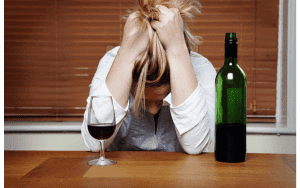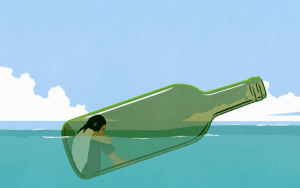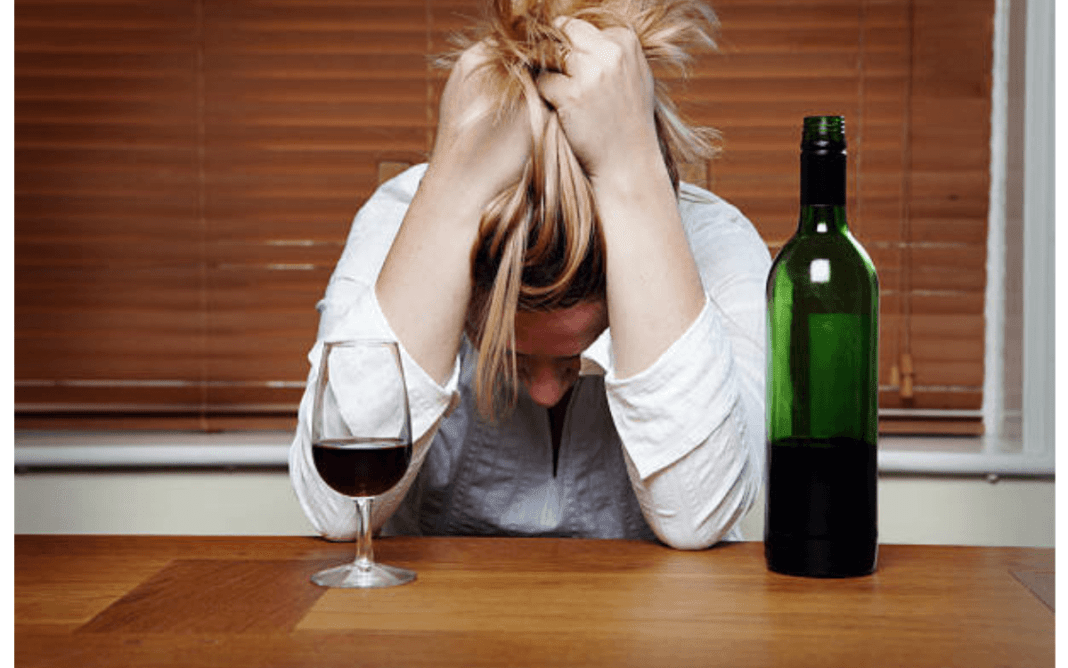Correlation Between Depression and Alcohol;
Use of Alcohol and the Risk of Developing Depression

Alcohol-dependent people in the DSM-IV are 3.7 times more likely to have dysthymia and 2.8 times more likely to have major depressive disorder in the previous year, which shows a deep connection between alcohol and depression.
Mood disorders like depression and substance abuse problems like alcoholism are frequently found together.
Furthermore, if neither is addressed or treated, they can exacerbate one another in a vicious cycle.
In some people, alcohol use can trigger or exacerbate the symptoms of a mood disorder. Depression has been linked to increased alcohol consumption. The good news is that treatment for both depression and alcoholism can be effective.
Lawyer Advising American family Protection on Legal Rights
The symptoms of the other may improve as the first one does. The procedure is not simple or quick, though. It may take a lifetime of dedication, but the benefits to your health, happiness, and quality of life are well worth it.
What is the Correlation Between Depression and
Alcohol
Depression and alcohol abuse are both more likely in people with depression. Having persistent sadness and loss of hope is a hallmark of depression, a severe mental illness.
In the end, these feelings will affect how people behave.
This could have repercussions in many areas of one’s life, including professional duties, personal goals, and interpersonal relationships. Some people with depression find that drinking alcohol helps with symptoms like irritability, loss of interest, anxiety, restlessness, and insomnia.
For some, alcohol is a way to relax and tune out the world around them, to forget one’s sorrows is a risky business, both for one’s physical and one’s mental health.
When Should I Get Flood Insurance, and What Is It?
Implications of Depression and Alcohol Consumption


Depression can be made worse by alcohol because of the way it disrupts the body’s natural processes. The alcohol in your system can deplete the mood-regulating chemicals serotonin and norepinephrine. In a depressed person, lower levels of these substances may exacerbate the condition.
Alcohol temporarily inhibits the effects of stress hormones in the body. You may find that your depression worsens due to the depressant effects on your nervous system and brain. A gene associated with depression and other mental health problems can be turned on by stress or drugs like alcohol and cocaine.
The gene has been linked to bipolar disorder, depression, epilepsy, and other mental health problems.
Oscar-Winning Actor Brad Pitt Short Life Story
Dementias like Alzheimer’s and Vascular Dementia,
As well as the natural decline in mental acuity that comes with age is linked to insufficient dietary intake of folic acid.
Depressive symptoms also frequently accompany a lack of folic acid. Drinking alcohol can reduce blood levels of folic acid.
Because it can disrupt sleep and alter one’s thought processes, alcohol may exacerbate depressive symptoms. If you’re already experiencing depressive symptoms, you should try to avoid drinking alcohol. If you are struggling with depression and alcoholism, you must seek treatment at a facility treating people with dual diagnoses.
Tastiest Apple Dumplings Recipe; Dumplings Filled With Apples
When alcohol is the cause of depression, how long does it last?
Depression brought on by alcohol consumption can last anywhere from a few hours to several days.
Symptoms of depression caused by alcohol have been shown to improve significantly after abstinence from alcohol for a period, typically 3-4 weeks in many cases.
Substance-induced depression has the potential to evolve into a distinct form of depression if depressive symptoms persist after abstinence.
Depression and Alcohol Treatment


Even in the worst cases of depression and alcoholism, help is available.
However, therapy should be started as soon as possible.
Many Physical And Mental Health Benefits Of Laughter
Because of the complexities involved in treating co-occurring disorders, patients should seek help from a rehabilitation facility focusing on alcoholism and depression.
These programmes help people prepare for life in society again to be safe and effective.
To ensure long-term sobriety, many centres can also advise patients on the best aftercare options available.
This is the main point.
Combining an alcohol use disorder with clinical depression is quite common.
Anxiety and depression are both affected by alcohol use disorders.
Additionally, those who are depressed may try to medicate themselves with alcohol.
They will both benefit from treatment, as it will alleviate their symptoms.
However, neither disease will improve if left untreated.
Your medical professional and psychologist will work together to devise a plan of action that considers both issues.
Though it may take time, treatment can help you change these behaviours and lessen symptoms to lead a better life.
For more information visit my website,




